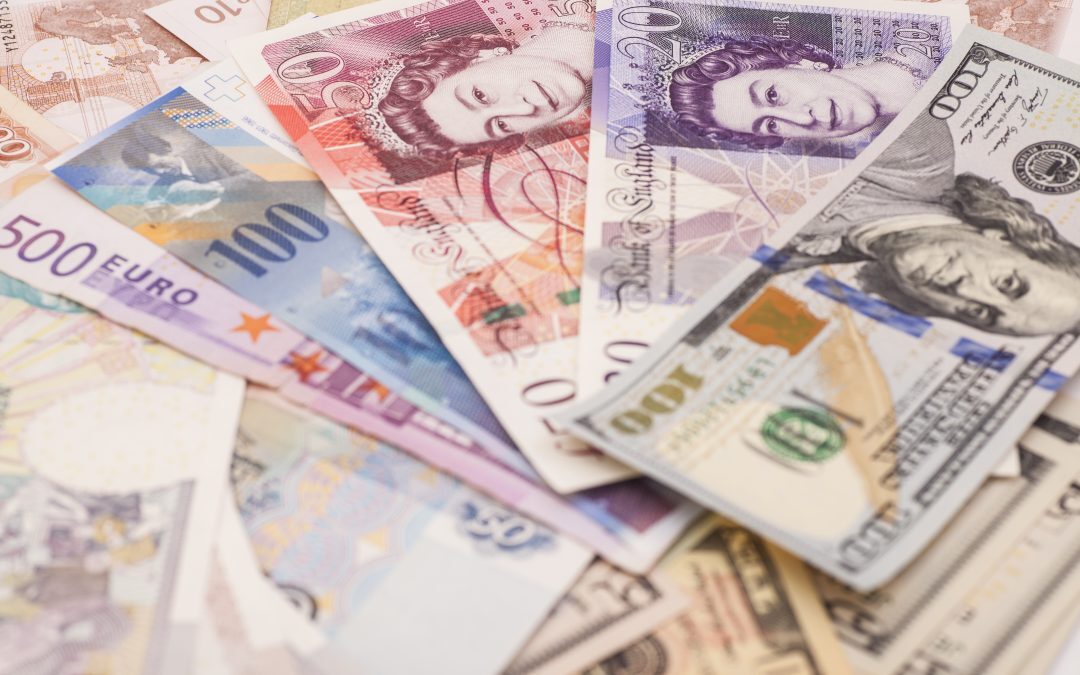Each day the pound rises and falls in value against the euro, the dollar, the yen, the rand and all other currencies. Why does that happen and what can you do about it?
Exchange rates are never still. They strengthen and weaken as governments, banks, companies and individuals buy and sell currency. Most of us are buying currency for our own needs – a trip abroad, or even for a big purchase such as a holiday home – but those big institutions and governments are buying in response to economic and political news.
This includes news on interest rates, inflation, consumer confidence, GDP and how much business we are doing with the world.
Sterling (GBP)
The strength of the British pound, (known as sterling following its origins as a weight of sterling silver) like any currency, is based on the health of the economy. That is why the pound fell so fast after the Brexit referendum – hardly surprising give the warnings from the OECD, IMF and British Chancellor about the negative effect it would have on the economy.
On a short-term basis, however, the monthly decisions on interest rates made by the Bank of England’s Monetary Policy Committee (MPE) are one of the most critical factors. That, in turn, is based on such data as inflation rates, house prices and consumer confidence, as established by the Nationwide Consumer Confidence Index (NCCI). The monthly statement on the growth or fall of the economy – the GDP reports – is also vital, as is the Balance of Payments, which monitors how the UK is interacting with the rest of the world.
At a political level, financial markets like stability, but they also tend to favour governments that believe in the free market. That means that if there is a political upheaval or instability, traders sell the pound and the value goes down.
Euro (EUR)
Eurozone interest rates are set by the European Central Bank (ECB), so its monthly announcements on monetary policy are among the most influential factors on the strength of the euro. The biggest economy in the Eurozone is Germany, so economic data from here will affect the markets most, but France, Italy and Spain are all big economies where positive data will strengthen the euro. Inflation and unemployment levels are important, as are earlier indications as to the health of the economy such as the Purchasing Managers’ Index (PMI). If factories are buying, the economy is looking good and the euro should be buoyant.
The euro is also buffeted by political news from throughout its 27+1 members. News that suggests that the coherence and power of the EU is increasing will strengthen the euro. Political upheaval and arguments within the Eurozone, such as Brexit and the risk of Greece leaving the euro, will knock it down.
US dollar (USD)
With so much focus on everything that the world’s biggest superpower does and says, even the world’s most traded currency is affected by the day’s news. If the American economy is doing well, with good jobs, high earnings (look out for positive data on “non-farm payrolls”), healthy GDP growth and low but consistent inflation, the dollar should rise. But with the USA such a powerful political player, it is buffeted by any and all political news too, including twitter exchanges between President Trump and North Korea. All currency markets dislike instability.
The biggest influence on the “greenback”, however, as in other countries, is monetary policy. This determined by the Federal Reserve Board (“the Fed”) which decides interest rates each month. Such is the influence of interest rates that any nuance or hint on the direction of rates will be seized upon early. The actual announcement of the rate, unless a complete shock, is often a damp squib.





















